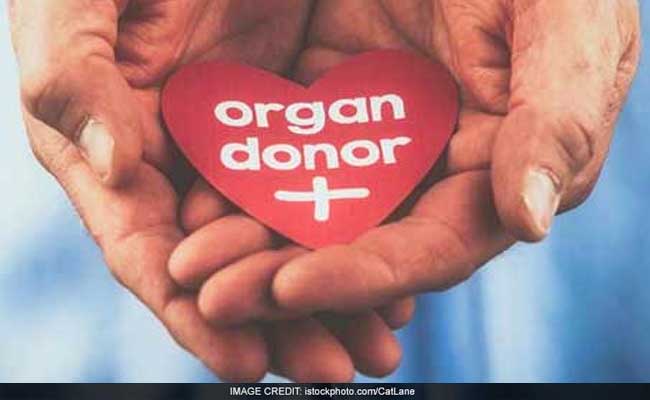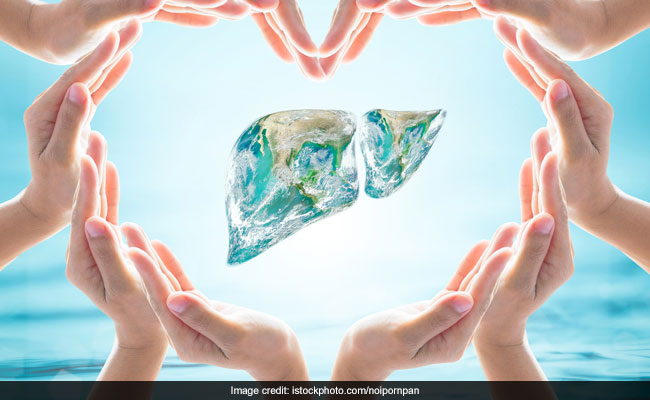Organ donation day is observed on August 13 to create awareness about the importance of organ donation. This day tries to remove the myths about organ donation. Read here to know more about organ donation.

Organ Donation Day is observed on August 13 each year
HIGHLIGHTS
- Organ donation is giving an organ to someone who needs a transplant
- Many vital organs can be donated which can save someone's life
- Organ donation can give a new life to someone in need
Organ Donation Day is observed on 13 August each year. This day tries to create awareness about the importance of organ donation which can help save lives. Organ donation is the gift that can help someone who needs a transplant. It is a procedure in which an organ is surgically removed from a body and placed in the body of a recipient, to replace a damaged or failed organ. Dr. Anil Kumar B T who is a Senior Consultant and HOD - Nephrologist and Transplant Physician at BGS Gleneagles Global Hospital explains the importance of organ donation.
Organ donation day: Everything about organ transplantation
Organ transplantation is one of the great advances in modern medicine, introduced in the twentieth century. Transplantation saves lives of patients who are suffering from terminal organ failures and improves their quality of life. These lifesaving transplants are indispensable to treat patients with irreversible diseases in liver, heart, or lung. Unfortunately, the requirement for organ donors is much greater than the number of people who actually donate.
So far, organs that have been successfully transplanted include the heart, kidneys, liver, lungs, pancreas, intestine, thymus and uterus. Doctors have also performed tissue transplants which include bones, tendons, cornea, skin, heart valves, nerves and veins. There are two types of Organ donation, i.e. organ taken from a person who is still alive termed as Living Donor and the second is from someone who has just died.

World Organ Donation Day 2020: Liver and other organs can be donated to someone in need
Photo Credit: iStock
In Living donor, the donor remains alive and donates an organ or part of the organ in which the remaining organ can regenerate or take on the workload of the rest of the organ. Living organ donors can donate, one kidney, a lung, a portion of liver, pancreas or intestine.
However, organ donation is the process of giving an organ or a part of an organ, to the recipient at the time of the donor's death. There are two types of organ donation; one is Donation after Brain Death (DBD) and the second is Donation after Circulatory Death (DCD).
Patients who are declared brain dead are the ones who had severe brain injury caused due to an accident and are confirmed with no activity in the brain, but the heart continues to beat for a few hours or days. In that state, doctors make sure that the vital blood supply to the organs is well maintained so that it can be retrieved for organ donation.
Also read: Some Facts About Organ Donation
Kidneys that are taken from living donors survive longer. However, because of improving socioeconomic status, nuclear families and fear of future health risks to donors, there has been a gradual decline in living donor transplantation.
There is ever increasing gap between demand and supply for organ transplantation. Effective communication, discussions about organ donation as a part of end-of-life care, public awareness can play an important role in spreading awareness about the need of organ donation.
Organ donations after death donor can give a new lease of life to 8 people through organ donation and enhance more than 75 lives through tissue donation. Hence, organ donation after death to the suffering fellow human beings can help them lead a healthy life. This can be done by signing a donor card, while a person is alive. All are eligible to donate their organs except for those who are under 18, as they need to take special permission from their parent or legal guardian before donating their organs.
Also read: 10 Myths About Organ Donation
Disclaimer: The opinions expressed within this article are the personal opinions of the author. NDTV is not responsible for the accuracy, completeness, suitability, or validity of any information on this article. All information is provided on an as-is basis. The information, facts or opinions appearing in the article do not reflect the views of NDTV and NDTV does not assume any responsibility or liability for the same.
DoctorNDTV is the one stop site for all your health needs providing the most credible health information, health news and tips with expert advice on healthy living, diet plans, informative videos etc. You can get the most relevant and accurate info you need about health problems like diabetes, cancer, pregnancy, HIV and AIDS, weight loss and many other lifestyle diseases. We have a panel of over 350 experts who help us develop content by giving their valuable inputs and bringing to us the latest in the world of healthcare.












